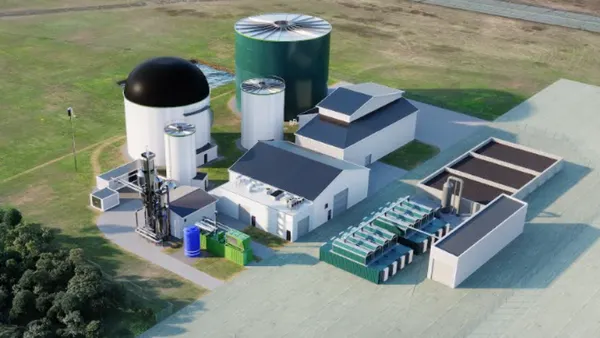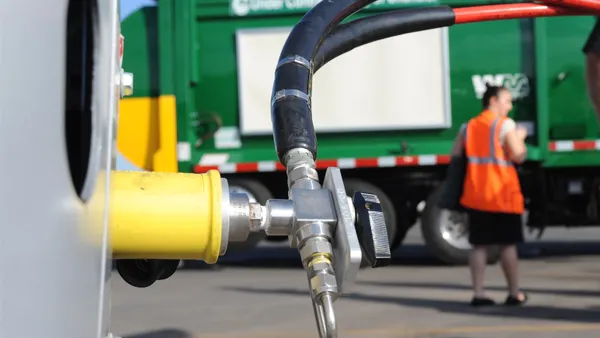Dive Brief:
- Dirty aluminum foil can be converted into a catalyst for biofuel production, according to a researcher at Queen's University Belfast. Recycling aluminum from all feedstock is critical, according to the paper, (published in Scientific Reports), because bauxite mining, the main source of aluminum, is environmentally damaging.
- The researchers were able to dissolve the foil in a solution that turned it into crystals, and then used a second mixture to purify the crystals into pure aluminum salts, according to Mental Floss. Those pure salts can be used in creating alumina catalyst, which is a key ingredient in making dimethyl ether (DME), a diesel substitute.
- According to the author of the paper, producing the alumina catalyst from dirty aluminum foil costs about $142 per kilogram (just over 2 lbs.), while the commercial cost for the alumina catalyst is around $360 per kilogram — demonstrating significant savings.
Dive Insight:
The industrial process of chemically and physically transforming dirty, used aluminum foil into usable, pure aluminum crystals, may be complicated — but the implications are clear. Instead of landfilling used aluminum and taking up valuable airspace, that aluminum can be turned into a valuable biofuel.
As more areas pursue organics diversion goals, solutions should be explored on all steps of the food chain, from packaging to waste processing. While clean aluminum can be utilized by recyclers or scrap sellers, dirty aluminum can't do much more than add to the weight of a landfill delivery, and can contaminate organics collection. Converting dirty aluminum to a usable industrial material, then, could become a valuable cottage industry, if the paper's findings are viable.
Queen's University said, in a press release, that the author of the paper, Ahmed Osman, plans to continue researching ways to further improving the catalysts that produce DME, to make production more commercially viable. Osman's research could also include looking at ways to use the alumina crystals produced from the dirty aluminum foil in the catalytic converters of vehicles that run on natural gas. Given the industry trend, both from companies and governments, away from traditional fuel in collection trucks, these developments are worth keeping an eye on. The New York Department of Sanitation has been testing a DME-powered Mack Truck, with results expected sometime soon.









